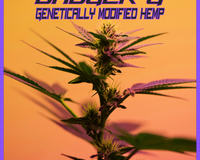Trigeminal neuralgia (TN) is one of the most painful disorders known and is commonly referred to as the suicide disease. The trigeminal nerve is responsible for the transmission of all sensory information from the face and head. This includes but is not limited to temperature, pain, and pressure sensation. Most of us experience the benefits of the trigeminal nerve; we are able to feel the wind on our cheeks as it blows by, or we can feel the classic grandmother cheek-pinch, but we are able to tolerate the pain and it subsides quickly. If the nerve bundle becomes irritated or damaged, it can being to malfunction in extremely painful ways. The once soft wind can feel like sensations of burning, lacerating, slicing, stabbing pain in the cheek, ear, eye, mouth, and teeth, and the pain can last several hours.

The most common cause of trigeminal neuralgia is believed to be vascular compression of the nerve bundle close to where it enervates with the brain stem. The pressure irritates the nerve and the nerve can no longer function properly. Eventually the irritation results in demyelination and severe neural dysfunction. The dysfunctional nerve fires erratically, becomes hypersensitive, and may no long be able to terminate a sensation once the corresponding stimulus has been removed. As a result, someone suffering from this condition will experience paroxysmal allodynia, the sudden onset of extreme pain initiated by non-painful stimuli such as a feather brushing the cheek. Other suspected causes include pressure from tumor, cystic spider bite in the right location, damage from multiple sclerosis, car accident, facial surgery or even body piercing.
The first treatment typically used for patients suffering from TN is medications. Unfortunately, the medications do not always work, and people using the medications are likely to suffer from unwanted side effects. After medications are proven to not be beneficial, many people will turn to surgery, which carries an entirely different set of risks.
For anyone suffering from this horrific disorder, desperation is real and most patients are willing to give ANYTHING a shot. Many people have hopped on the band wagon of CBD and are trying it out for themselves, basking in the success. It is time for anyone living with TN to get some relief from this extremely painful disorder and start enjoying life again.
Do you have a question or comment about CBD? Let us know, and we will respond right away. In the meantime, sign up for our newsletters and visit our website DiscoverCBD.com regularly for the latest updates on research, legislation, and other news impacting you and cannabidiol.
For research on cannabinoids and trigeminal neuralgia, check out these links:
Cannabinoids for Trigeminal Neuralgia: Relief from the Fire Ants in a Feather's Touch
Therapeutic Potential of Cannabinoids in Trigeminal Neuralgia
Neuropathic Orofacial Pain: Cannabinoids as a Therapeutic Avenue
Refractory Trigeminal Neuralgia Responsive to Nabiximols in a Patient with Multiple Sclerosis


























